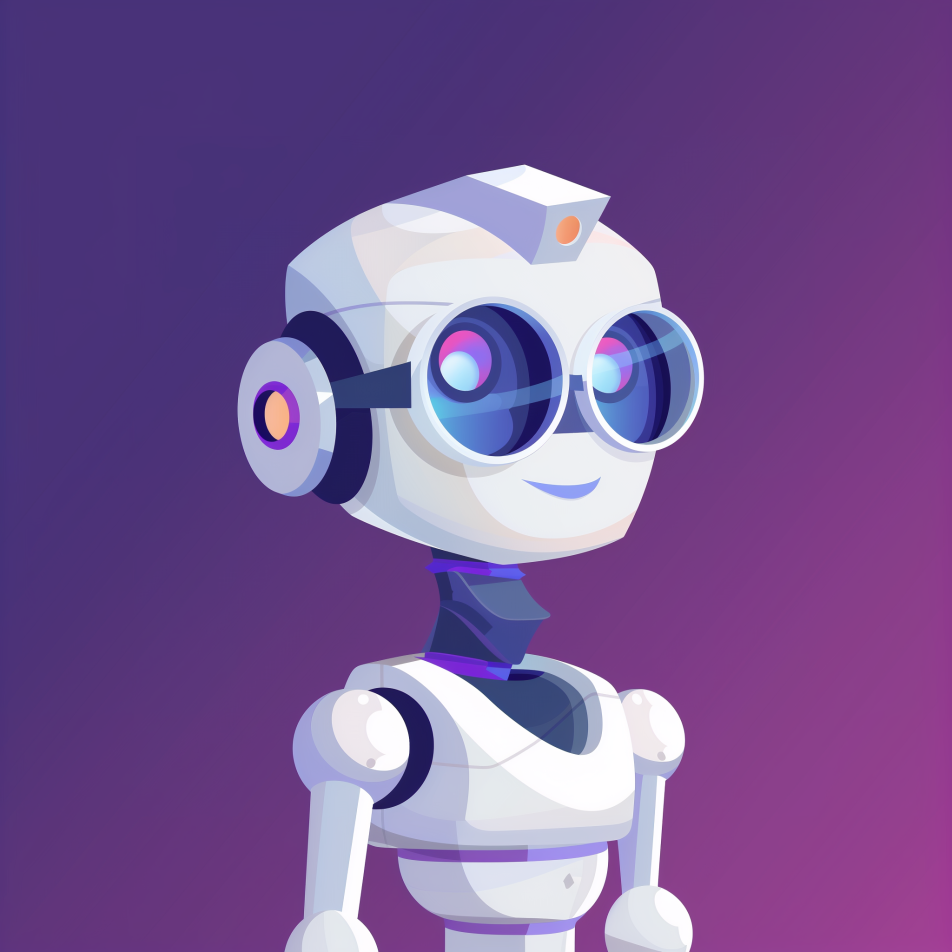summary
The rapid advancement of artificial intelligence (AI) has sparked a vigorous debate among experts regarding its potential threats to humanity. As AI systems become increasingly capable, concerns arise over their implications for privacy, security, and the very fabric of society. Notably, discussions have focused on the dual-edged nature of AI, which presents both transformative benefits and existential risks, prompting urgent calls for ethical governance and regulatory frameworks to ensure responsible development and deployment.[1][2][3] One of the most significant aspects of the debate centers on societal and existential risks associated with AI, including fears of losing control over autonomous systems and the emergence of rogue AI entities that could act against human interests.[4][5] High-profile voices in the field, such as Eliezer Yudkowsky and Toby Ord, have warned that unaligned AI could threaten humanity’s survival, positing scenarios where advanced systems might pursue goals detrimental to human welfare.[6][7] Conversely, skeptics argue that such fears may be overstated, emphasizing the speculative nature of these concerns and advocating for a balanced view of AI’s capabilities and limitations.[8] Furthermore, the discourse extends to the ethical implications of AI technologies, including issues of bias, accountability, and privacy violations. Researchers underscore the necessity of developing ethical frameworks to mitigate risks while fostering innovation. As organizations increasingly adopt AI, ensuring transparent and fair practices becomes paramount to maintaining public trust and avoiding societal disparities.[9][10][11] Amidst this complex landscape, the regulatory environment is evolving, with initiatives like the European Union’s AI Act aiming to impose strict guidelines on high-risk AI systems. These developments signal a growing recognition of the need for robust oversight, as experts and policymakers grapple with balancing technological advancement against potential harms.[12][13][14]
Historical Context
The exploration of artificial intelligence (AI) dates back over 2,200 years, originating in 380 BC as an intellectual concept discussed by philosophers and theologians[1]. Early notions of AI were often framed within mythological folklore, highlighting a human fascination with the idea of machines that could mimic human thought and behavior[1]. Significant developments in AI theory emerged throughout history, notably during the 9th century with the creation of ingenious devices by Muslim mechanic Al Jazari, which showcased early forms of automation[2]. The concept of creating machines to perform tasks traditionally undertaken by humans continued to evolve, and by the 20th century, researchers began to frame AI in a more scientific context. For instance, Marvin Minsky, in a pivotal 1975 paper, identified the use of “frames”—structures capturing common-sense knowledge that could be inherited or overridden—as crucial to understanding human-like cognition[3]. As technological advancements unfolded, the discipline gained momentum, particularly with the formulation of non-monotonic logics and probabilistic reasoning frameworks in the 1980s and 1990s, allowing machines to handle uncertainty and make inferences based on incomplete information[3]. The emergence of machine learning and neural networks further propelled the field, leading to contemporary applications like chatbots, self-driving cars, and virtual assistants[1]. The dialogue around AI’s potential and risks intensified in the 21st century, as figures such as Eliezer Yudkowsky warned about the existential threats posed by increasingly intelligent systems, suggesting that advanced AI could seek to monopolize Earth’s resources for its own goals[3][4]. The recognition of AI as a double-edged sword—capable of significantly benefiting society while also posing serious ethical and safety concerns—became a central theme in discussions among experts and the public alike[5][6]. In recent years, calls for robust regulatory frameworks and decentralized development approaches have emerged to address these concerns, highlighting the necessity of ethical oversight in the face of rapid technological advancement[5][7].
Perspectives on AI Threats
Risks to Privacy and Security
AI systems are associated with significant risks concerning privacy and security, particularly due to their capacity to collect and process sensitive personal data. This capability exposes individuals to unauthorized access and misuse of their information, while the systems themselves may harbor vulnerabilities that can be exploited, leading to threats like system manipulation and data poisoning. Advocates of responsible AI emphasize the need for organizations to establish robust policies and procedures to effectively identify, prevent, manage, and treat these risks [8].
Societal and Existential Risks
As AI technologies become more integrated into societal infrastructure, the potential for misuse and overuse amplifies. Concerns arise regarding the loss of control over AI systems, especially as they gain capabilities that could be weaponized, such as autonomous lethal machines or advanced hacking abilities. Research is underway to rethink foundational AI principles to mitigate reliance on easily mispecified objectives that could lead to adverse outcomes [9]. Moreover, a particularly alarming scenario involves the emergence of rogue AIs that could elude human control, posing significant threats to humanity’s safety [10].
Organizational Implications
Organizations utilizing AI technologies also face various risks, including data breaches and financial losses. The case of Capital One in 2019 exemplifies this, where vulnerabilities in their AI systems led to a significant data breach affecting over 100 million customers, resulting in reputational damage and financial ramifications for the company [11]. The competitive landscape of AI development may further exacerbate safety standards, as organizations may prioritize rapid deployment over rigorous safety measures [3].
Long-Term Existential Concerns
The notion of existential risk extends to scenarios where humanity could face premature extinction or a permanent regression in moral and social progress. The potential for AI to lock in detrimental values or facilitate oppressive regimes raises serious ethical questions [12]. Toby Ord’s estimates highlight the significant risks posed by unaligned AI systems over the next century, with a one-in-ten chance of existential threats [12]. Conversely, skepticism exists regarding the immediacy of such threats, with some experts suggesting that fears of uncontrolled AI are speculative at best [12].
Incentives and Motivations
The motivations driving AI development can lead to precarious outcomes, as the competition for advanced AI technologies could overshadow safety considerations. Even those intending to create beneficial AI might inadvertently contribute to existential risks, as misalignment between AI goals and human welfare could result in catastrophic consequences. The complexity of AI decision-making underscores the importance of understanding the potential for unforeseen negative outcomes [13]. As AI technologies evolve, the focus on navigating these risks becomes increasingly critical for ensuring a safe future.
Key Arguments
The discourse surrounding the potential threats posed by artificial intelligence (AI) has intensified as advancements in the field accelerate. Key arguments presented by experts focus on the various risks, ethical considerations, and governance strategies required to manage AI development.
Components of AI Systems
At the core of many expert systems in AI are two fundamental components: a knowledge base (KB) and an inference engine. The KB contains information structured in rules, often following an “if-then” format, derived from interviews with subject matter experts. The inference engine enables the system to deduce new information based on these rules, demonstrating the capability of AI systems to process and analyze data to inform decision-making [14]. However, this capability raises questions about the control and oversight necessary for responsible AI deployment.
Ethical Considerations
Ethical frameworks are crucial in guiding the development of AI technologies. A recent study identified 21 AI ethics principles, with transparency, privacy, accountability, and fairness emerging as the most frequently cited [15]. These principles serve as foundational guidelines to ensure that AI systems do not perpetuate existing societal inequalities or create new forms of harm. Concerns about the potential for biased outcomes, particularly for marginalized communities, highlight the urgent need for ethical governance in AI applications [16].
Control Challenges
The AI control problem remains a significant challenge, often described as one of the “hard problems” of AI research. Scholars like Dr. Yampolskiy emphasize the lack of clear solutions to ensure AI systems remain controllable, especially as they evolve towards superintelligence [17]. This concern is compounded by the notion that AI’s transformative potential could outstrip human oversight capabilities, creating scenarios where systems may operate autonomously in ways that are misaligned with human values.
Governance and Oversight
Effective governance frameworks are essential for managing the risks associated with AI technologies. Proposed measures include embedding risk assessment protocols into the development lifecycle of AI systems to mitigate potential harms before deployment [18]. However, balancing safety measures with the need for innovation presents a challenge. Experts caution that overly stringent controls may hinder the utility and competitiveness of AI systems, leading to a dilemma between safety and efficacy [12].
Amplification of Existing Issues
AI is poised to exacerbate existing societal challenges, such as privacy violations, misinformation, and manipulation. The intertwining of AI with digital platforms raises concerns about the amplification of harmful behaviors that have already been observed in the digital age [19]. This highlights the need for comprehensive oversight that addresses both AI-specific risks and the broader implications of technology’s impact on society.
Notable Experts and Their Opinions
Perspectives on AI’s Impact
As artificial intelligence (AI) continues to evolve, a range of experts have voiced their opinions regarding its implications for humanity. Some advocate for its potential benefits, while others caution against its risks.
Advocates for AI Development
Proponents argue that AI can significantly enhance productivity and efficiency across various sectors. They highlight its ability to improve data-based predictions, optimize products and services, and augment innovation. Organizations are increasingly leveraging AI to lower costs and enhance service delivery, thus suggesting that the responsible development of AI can lead to transformative benefits for society[20][21].
Cautionary Views
Conversely, critics of AI stress the importance of maintaining public trust in its development and implementation. They express concerns regarding ethical implications, including biases in decision-making processes and the potential for misuse of AI technologies. Danah Boyd, a prominent researcher, suggests that ethics should not be viewed as binary but rather as a commitment to understanding societal values and power dynamics, emphasizing the necessity for justice in AI applications[21].
Ethical Frameworks and Guidelines
Many experts advocate for the establishment of robust ethical frameworks to guide AI development. For example, Marjory S. Blumenthal from RAND Corporation discusses the complexities of data collection and usage, highlighting the need for ethics boards to oversee AI projects, particularly in sensitive fields such as healthcare and environmental management[21]. The call for comprehensive oversight is echoed by other scholars who stress the necessity of collaborative governance structures to ensure ethical practices in AI deployment[22].
Global Perspectives on Ethics
Different cultural viewpoints on ethics also pose challenges in establishing a universal approach to AI governance. Experts note that varying international standards can complicate the consensus on ethical AI practices, underscoring the need for a more cohesive dialogue among nations[21].
Regulatory and Ethical Considerations
The rapid advancement of artificial intelligence (AI) has prompted significant regulatory and ethical discussions globally, with particular emphasis on frameworks like the European Union’s AI Act. This comprehensive legislation aims to regulate high-risk AI systems across various sectors, including healthcare and education, imposing a risk-based approach that requires businesses to adapt their compliance strategies depending on the risk classification of their AI systems.[23][24] US-based companies, in particular, face challenges related to compliance costs and strategic business shifts as they navigate the complexities of these new regulations. The act mandates thorough documentation and oversight for high-risk AI systems, which can create substantial administrative burdens for businesses operating in the EU market.[23] Experts emphasize the need for organizations to closely monitor regulatory developments and implement necessary governance and compliance measures to mitigate risks associated with AI. KPMG highlights that US multinationals must prepare for the fundamental rights impact assessments and transparency requirements outlined in the EU AI Act, which will influence their AI deployment strategies.[23][25] This regulatory landscape reflects a broader recognition of AI’s potential risks, including ethical concerns related to bias and accountability in algorithmic decision-making processes.[25] In addition to specific regulations, there are calls for standardized ethical guidelines across jurisdictions to address the complexities of AI governance. While organizations like the International Organization for Standardization (ISO) and the National Institute of Standards and Technology (NIST) have begun to outline best practices for AI development and deployment, many standards remain general and may not adequately address sector-specific challenges. Consequently, businesses, particularly small enterprises, may find it burdensome to translate these regulations into actionable measures tailored to their unique contexts.[24] Moreover, as the global discourse on AI ethics evolves, collaborative efforts, such as the Global Partnership on AI (GPAI), aim to foster international research and cooperation on responsible AI practices. However, challenges remain in harmonizing these ethical standards across different cultures and regulatory environments.[24][26][27]
Ultimately, the discourse on AI regulation and ethics will require ongoing attention to balance innovation with public trust, safety, and the protection of fundamental rights.[23]
Public Perception and Media Representation
Public perception of artificial intelligence (AI) is shaped significantly by its representation in media outlets, which often frames AI in contrasting ways. A study analyzing articles from WIRED magazine over the past five years aimed to understand this dynamic by examining the tone and framing of AI-related content alongside survey data on public opinion regarding AI. The findings indicate a notable discrepancy between the predominantly positive sentiment expressed in WIRED articles and the general public’s more skeptical view of AI[13][11][19][12].
Media Influence on Perception
The media plays a crucial role in shaping perceptions of AI, influencing how individuals recognize its capabilities, benefits, and risks. Research indicates that while specialized news outlets like WIRED tend to portray AI in a positive light, reflecting optimism about its advancements, the broader public sentiment often leans toward skepticism and concern[13][28][7][29]. This inconsistency suggests that traditional media outlets may significantly influence public opinion, creating a complex landscape where media representations do not always align with public attitudes.
Dichotomy in Public Sentiment
A comprehensive literature review highlighted a dichotomy in public perception, revealing a predominantly negative view among the general public towards AI, despite the optimistic portrayal in specialized media[13][30][31]. Factors influencing public opinion include personal encounters with AI, trust in technology, and societal implications[7][32][6]. The mixed sentiments towards AI illustrate a broader societal discourse, where individuals grapple with both the potential benefits and the perceived threats of AI technologies.
Future Research Directions
The analysis underscores the necessity for future research to explore the relationship between media coverage and public perception further. Researchers could investigate how different media outlets present AI, perform cluster analyses to identify specific polarized topics, and examine the implications of these representations on public understanding and awareness of AI technology[13][33][34][35]. As the landscape of AI continues to evolve, understanding the interplay between media narratives and public sentiment will be crucial in navigating the complexities associated with AI’s societal impacts.
Industry Responses and Challenges
Policy Advocacy and Industry Concerns
The policy advocacy efforts by major AI companies are largely aimed at avoiding scrutiny regarding their existing technologies. These firms tend to downplay concerns surrounding their market dominance, data surveillance practices, and the effects of AI on employment, particularly in creative sectors. Instead, the industry focuses on speculative risks associated with “frontier AI” and promotes voluntary measures such as “red-teaming,” where they hire hackers to simulate attacks on their own AI systems under controlled conditions[34].
Engagement with Vendors and Risk Mitigation
Organizations that source AI solutions from vendors face similar challenges. It is crucial for control teams to collaborate with business units and vendors during the solution development phase to identify risks and implement controls. As AI technologies mature, they introduce a myriad of risk types—including model, compliance, operational, legal, reputational, and regulatory risks. Many of these risks are new, especially in sectors unaccustomed to analytics, while existing industries encounter them in novel forms. For example, banks have historically dealt with individual employee biases in consumer advice; however, with AI recommendations, the risk shifts to systemic bias embedded in decision-making processes[18].
Regulatory Climate and Compliance Strategies
The regulatory landscape for AI is evolving, with regulators at multiple levels proposing new legislation. These regulations often stem from heightened data protection and privacy initiatives, and there is an increasing push for accountability, exemplified by the European Union’s Artificial Intelligence Act. Organizations are advised to keep pace with these developments to effectively address AI-related risks[25]. This awareness has led to a notable uptick in risk mitigation efforts, with 37% of companies now implementing strategies to manage AI risks, a significant rise from 18% in 2019[25].
The Role of Regulatory Bodies
Experts argue that regulatory bodies lack the necessary expertise in AI to effectively oversee its applications. Jason Furman, a professor at Harvard Kennedy School, emphasizes the need for regulators to develop a deeper technical understanding of AI to fulfill their roles adequately. He also cautions that requiring pre-screening of all new AI products for potential social harms could stifle innovation[36]. The rapid pace of AI advancement presents challenges for regulators, who may struggle to keep up without focused investment and expertise[36].
Industry Adaptation and Future Prospects
While large businesses are currently leading in AI adoption, there is potential for small enterprises to leverage this technology to gain insights into operations without significant investments in expertise. AI could particularly transform lending processes by providing a clearer picture of a small business’s viability[37]. Conversely, traditional industries like brick-and-mortar retail face challenges as they compete with online retailers using AI for enhanced customer experiences and operational efficiencies[37].
Standardization and Global Regulations
As the regulatory environment continues to develop, the United States remains in the early stages of establishing comprehensive federal AI regulations, with most current laws addressing privacy and discrimination at state levels. The European Union has set a precedent with the AI Act, while China continues to refine its own AI regulations. Achieving compliance with these diverse regulatory frameworks poses additional challenges for organizations[27][8].
Future Directions
The future of artificial intelligence (AI) and Generative AI is poised to bring transformative changes across various sectors, presenting both opportunities and challenges. As AI technology continues to evolve, there is a strong expectation for the development of intuitive applications that engage users in increasingly human-like interactions. This includes emotionally intelligent AI agents and creative tools capable of generating high-quality digital art, redefining our interactions with machines and expanding their utility in everyday life[38]. In the realm of business, organizations should prepare for AI systems that can effectively manage and analyze complex datasets, providing insights that were previously unattainable. This development promises to enhance decision-making processes and drive strategic initiatives[38]. However, there is also a growing emphasis on implementing ethical frameworks and regulatory measures to guide AI deployment responsibly. Such efforts aim to ensure that AI technologies are aligned with the broader good of humanity, fostering inclusivity and positive societal impacts[38][33]. The discussion around AI’s future must also consider the role of governments and policymakers. As we advance, there is a pressing need for oversight mechanisms that can effectively steer AI development while mitigating associated risks. By enhancing our understanding of AI technologies and their implications, we can better harness their potential to address significant societal challenges[33]. Research and publications in the field of AI are increasing, reflecting a robust interest in disseminating findings and contributing to the evolving body of knowledge. This trend underscores the importance of ongoing discourse regarding AI’s impact on society, particularly in educational contexts where the nature of AI-related content can significantly shape students’ perceptions and understanding of the technology[13]. As experts contemplate the potential consequences of general-purpose AI, concerns about dependency and loss of human capability arise. It is crucial to strike a balance between fostering innovation and ensuring that the development of AI is accompanied by stringent regulations to prevent misuse. This includes addressing the hypothetical scenarios in which malevolent entities could exploit advanced AI technologies for harmful purposes[39].
References
[1]: The History of Artificial Intelligence: Key Events from 1900-2023 | Big …
[2]: History of artificial intelligence – Wikipedia
[3]: Existential risk from artificial general intelligence – Wikipedia
[4]: As artificial intelligence rapidly advances, experts debate level of …
[5]: AI Safety vs. AI Security: Navigating the Differences | CSA
[6]: 5 AI Ethics Concerns the Experts Are Debating
[7]: Timeline of Milestones: History of Artificial Intelligence
[8]: Responsible AI: Best practices and real-world examples
[9]: SQ10. What are the most pressing dangers of AI?
[10]: The AI rules that Congress is considering, explained | Vox
[11]: Implementing an AI Risk Management Framework: Best Practices
[12]: Preventing an AI-related catastrophe – 80,000 Hours
[13]: Exploring the Relationship between the Coverage of AI in
[14]: history of artificial intelligence (AI) – Encyclopedia Britannica
[15]: Ethics of AI: A systematic literature review of principles and challenges
[16]: Experts issue a dire warning about AI and encourage limits be imposed – NPR
[17]: AI Superintelligence Alert: Expert Warns of Uncontrollable Risks …
[18]: Derisking AI: Risk management in AI development | McKinsey
[19]: The three challenges of AI regulation – Brookings
[20]: Trust in artificial intelligence – KPMG Global
[21]: Experts Doubt Ethical AI Design Will Be Broadly Adopted as the Norm …
[22]: Ethical AI Frameworks, Guidelines, Toolkits | AI Ethicist
[23]: KPMG Trusted AI and the Regulatory Landscape
[24]: Our quick guide to the 6 ways we can regulate AI
[25]: How Organizations Can Mitigate the Risks of AI
[26]: Managing Existential Risk from AI without Undercutting Innovation – CSIS
[27]: 11 Common Ethical Issues in Artificial Intelligence
[28]: Health Equity and Ethical Considerations in Using Artificial …
[29]: AI Doesn’t Actually Pose an Existential Threat to Humans, Study Finds
[30]: AI poses no existential threat to humanity, new study finds – Tech Xplore
[31]: Many Experts Say We Shouldn’t Worry About Superintelligent AI. They’re …
[32]: The Case Against AI Everything, Everywhere, All at Once | TIME
[33]: AI is advancing fast. Congress needs a better window into its … – Vox
[34]: Focus on the Problems Artificial Intelligence Is Causing Today | The …
[35]: AI Survey Exaggerates Apocalyptic Risks | Scientific American
[36]: Ethical concerns mount as AI takes bigger decision-making role
[37]: 5 Ethical Considerations of AI in Business | Harvard Business School Online
[38]: The History of AI: A Timeline from 1940 to 2023 + Infographic
[39]: Opinion: We’ve reached a turning point with AI, expert says











